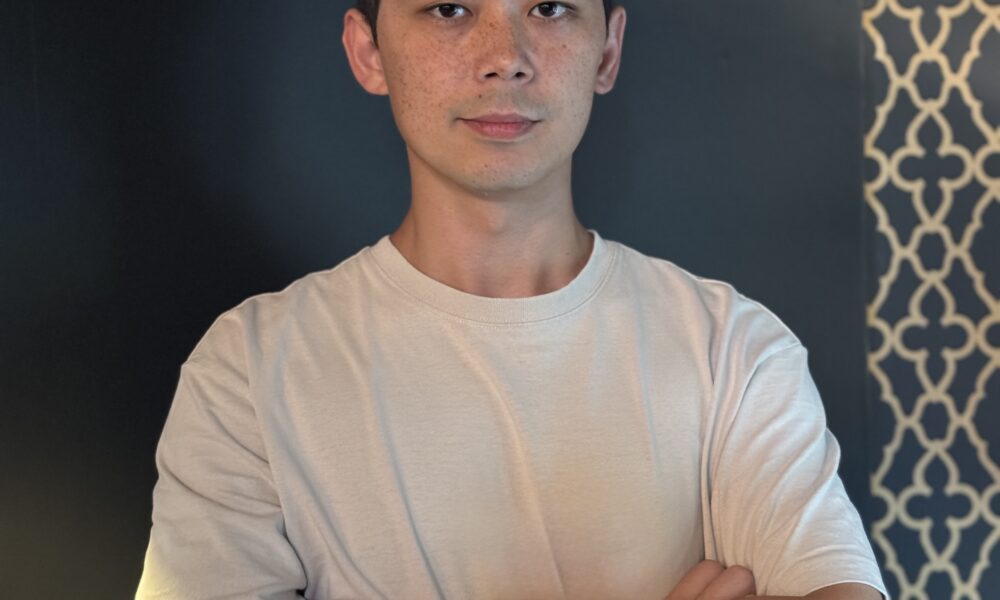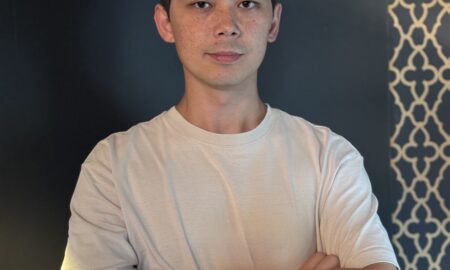“A Symphony of Selves in a World That Worships Silence”
By N.E.N.I.N
There Are Voices in the Room, and All of Them Are Me
I live in a shared flat. Only, I don’t pay extra rent — they all live inside me.
There’s the analyst — cold, precise, fond of quoting philosophers nobody likes.
The poet — teary-eyed, romanticising trauma into glitter and smoke.
The strategist — relentless, whispering ideas while I’m brushing my teeth.
The shadow — silent, sulking in corners, dragging up old betrayals like vintage wine.
And the child — the wild one, the seed, who still thinks this world can be salvaged.
This isn’t metaphor. This is how I think. How I live. I do not inhabit a single mind; I inhabit a syndicate.
Call it Maladaptive Daydreaming Disorder, or some obscure version of DID if you want. Medicalise it. Pathologise it. Stamp it with a name and pretend it behaves.
But know this: it is not a flaw. It is a multiplicity.
And I am its host.
When Reality Isn’t the Only Programme Running
Picture this. You’re playing a video game. The screen’s full of colour, sound, chaos. You’re clicking buttons, dodging enemies. But inside your head, another feed’s running.
One of your inner voices is drafting an article about post-capitalist shame. Another’s dissecting the conversation you had with your mum last week and noting what was unsaid. A third is planning how to emotionally gut the character you’re building in your novel. A fourth? They’re just vibing to the undertone of language — the musical hum that people mistake for “vibe” but that I can actually hear.
This is not distraction. This is orchestration.
People say: “Just be present.”
And I think, Which ‘me’ should I pick today? The one watching the world? The one narrating it? The one dreaming five minutes ahead?
We are all hosts of our own reality TV — mine just happens to have five camera angles, a surrealist soundtrack, and no ad breaks.
Auditory Synaesthesia and the Lying Notes
I hear words like music. Not metaphorically. Literally.
Every sentence you speak comes wrapped in a note. Sometimes a chord. Sometimes it splits into a dissonance, and I feel it in my chest before I’ve even understood what you’ve said.
When someone’s lying, the tone breaks. The melody gets brittle. It comes apart at the edges like an old VHS tape you’ve rewound too many times.
Sometimes words arrive in colour — pale, sickly green when you’re masking, or a violent red if you’re gaslighting and hoping I don’t notice. But I do.
I always do.
This is why I struggle in crowds. It’s not the noise — it’s the disharmony. A pub at closing time sounds like fifty flutes all shrieking in different keys. An office full of passive-aggressive small talk feels like someone’s dragging forks across a violin string in my skull.
When people ask if I have social anxiety, I smile and say no. What I have is a synaesthetic bullshit detector. Yours doesn’t beep — mine composes symphonies.
The Mental Roundtable (or: Why I Take So Long to Reply to Texts)
Imagine trying to decide — let’s say, about whether to go to that birthday party you’ve been dreading. Now imagine needing to consult five advisors first. Not people. Not imagined friends. You, split into five perspectives.
- The Empath: But they’ll be hurt if we don’t go. They made that cake.
- The Logician: There’s no strategic value in attending. Your energy will be depleted.
- The Narrator: What would the story of this choice sound like? A plot twist? A betrayal?
- The Shadow: They never show up for you. Why are you still loyal?
- The Healer: You’re exhausted. You deserve to rest.
Now imagine these voices all speaking simultaneously — in your head, behind your eyes, beneath the sound of the kettle boiling.
That’s why I sometimes stare blankly into space for fifteen minutes before answering a WhatsApp message that says, “u coming or nah”.
It’s not indecision. It’s council.
Daydreaming as Dissent: The Rebellion of Imagined Worlds
Here’s the part the therapists won’t say out loud: sometimes, your brain builds another world because this one is an insult.
I don’t daydream because I’m broken. I daydream because the external world doesn’t stretch wide enough to hold the breadth of my intellect, my longing, my rage, my sense of beauty.
Maladaptive daydreaming is marketed as a glitch — an error of attention, a deviation from “functional living”. But I know better. You know better. It’s protest. It’s refusal. When a world governed by mediocrity, monotony, and beige ambition tries to colonise your focus, your mind revolts.
Some of us never gave consent to live in a society where mortgage rates, dating apps, and line managers decide our reality. Our imagination builds a backdoor. A velvet revolution with no bloodshed — only metaphor, symbolism, and the occasional imaginary nemesis.
The maladaptive daydreamer isn’t delusional — they’re post-lucid.
You Call It a Disorder. I Call It Intelligence in Disguise
Let’s pause and ask: who gets to define “maladaptive”?
Whose version of “function” are we being measured against? The neurotypical grind-hustler who drinks productivity podcasts and thinks meditation is closing your eyes and not moving? Please.
You want me to call my internal symphony a dysfunction while Jeff from HR can’t handle a mild inconvenience without sending a six-paragraph email?
There is a bias baked into psychiatry — one that punishes the uncontrollable, the non-linear, the difficult to capitalise. And maladaptive daydreamers? We are all of those things.
Because let’s face it — our minds are not made for capitalism. Our minds run recursive loops, build generational sagas, debate ethics with our 11-year-old selves while microwaving soup. We think in parallels. We analyse emotional tone and subtext and facial micro-expressions while pretending to be interested in your anecdote about bin collection.
You call it “distracted”. I call it hyper-layered cognition.
The Great Misdiagnosis: When They Pathologised the Prophets
There’s a long history of brilliance being mistaken for madness. Poets locked up. Visionaries medicated into submission. Neurodivergent children punished for “not paying attention” when in fact they were paying attention to more dimensions than the teacher could imagine.
I sometimes think maladaptive daydreaming is what happens when your mind won’t shrink to fit the scaffolding of your body.
There are therapists who’ll tell you to train your attention back to the moment. To ground yourself. To stay here. And sometimes that’s necessary. I’m not anti-help. I’m anti-shrinkage. Anti-reduction.
There should be a difference between supporting a mind and shrinking it to fit a middle-class productivity model.
If I can live a second, third, or fifth life while on the bus, why would I trade that in to be a more obedient spreadsheet monkey?
The Five Selves Aren’t Imaginary, They’re Internal Specialists
Let me make something clear: I don’t have “imaginary friends”. I have inner strategists.
I have a self who writes with a scalpel.
A self who senses danger before it forms language.
A self who loves without conditions but always with boundaries.
A self who doubts everything, including this sentence.
And a self who just watches. Who never speaks. The observer. The seer.
They are not personalities. They are not “alters” or theatrical costumes. They are angles. Lenses. Modes of processing the overcomplicated, under-said architecture of existence.
You know how people say “I don’t know what came over me” when they act irrationally? I do. I always know which self was steering. Because I was watching them do it.
This isn’t disorder. This is governance.
A committee of me.
A parliament of selfhood — minus the corruption.
Social Situations are Auditory Horror Shows
I’ve tried to explain it before: socialising is like walking into an off-key orchestra where no one’s playing the same song, and half of them are trying to lie about the melody.
I don’t just hear what people say. I hear what they mean. I hear the note beneath the note. I sense the gap between word and intention. I pick up the chord they don’t know they’re strumming. And when that chord clashes with the words they’ve chosen? It makes me want to vomit.
People call it intuition. It’s not. It’s frequency literacy. It’s synaesthetic pattern recognition that comes so fast I barely clock it.
You can’t small talk with people when their sentences sound like untuned ukuleles.
I retreat. Not because I hate people. But because they sound like lies.
And I prefer to live among my selves.
Because they, at least, are honest.
Sensory Overload: When the World is Too Loud to Think
For most people, the world is noisy. For me, it’s deafening — not in decibels, but in dissonance.
There’s a particular kind of collapse that happens when you hear too much. Not just sounds, but meanings. Harmonics. Colour frequencies. Emotional static. You walk into a room and it’s a wall of signal — not one clear tone, but a thousand overlapping tracks. Someone’s pretending to like you. Someone else is suppressing an outburst. Another person is drowning in grief so repressed it hums like a dial-up modem in the back of their throat.
And all of it enters you. Not like data. Like weather. It shifts your body. Warps your thoughts. Makes the article you were drafting in your third-self dissolve into static, like fog rolling over architecture.
I call this moment “the break”.
The break is when I lose the capacity to split between selves. When all the voices go silent. Not because they’re gone — but because the external noise hijacked the signal.
Imagine five radios playing different compositions in harmony. Then imagine someone turning on a leaf blower in your chest.
That’s the world when I haven’t slept. When I’ve over-peopled. When I haven’t had silence long enough to hear myself remember I exist.
The Tyranny of Integration
Let’s talk about the soft fascism of psychological advice: “You should try to integrate your parts.”
Oh, should I? Why?
I can become more digestible to therapists with IKEA chairs and mindfulness apps? I can mimic the flat, linear mind that capitalism adores — the one-track, goal-oriented, LinkedIn-branded human that tick boxes and goes to brunch?
No. Thank you.
The pressure to “integrate” presumes that multiplicity is failure. That the mind must obey unity. But maybe I was never meant to be one voice. Maybe I was born for the polyphony. For the layered echo chamber. For the consciousness that runs in counterpoint, not chorus.
The idea that there is one “core self” is cute. Colonial, even. It reeks of borders and police. Of maps and fences. Of systems that fear what they cannot catalogue.
Integration is not my salvation. It is my erasure.
When Dreaming is Safer than Waking
I need you to understand something sacred now: sometimes, daydreaming is the only safe place.
When the world has violated your body, neglected your needs, ignored your truth — the inner world does not ask for proof of pain. It believes you.
It lets you rebuild.
You craft characters who hold space for you. You create worlds where your identities aren’t debated, dissected, or disbelieved. You write love into the silence. You carve meaning from the mess.
That’s why I rage at the word “maladaptive”. Because it ignores the fact that this dreaming is what adapted me through abuse, neglect, and existential terror. It kept me breathing when reality offered nothing but dust.
We don’t mock a child for playing pretend to survive loneliness. Why do we shame adults for doing the same — just with better vocabulary?
The Problem with Mindfulness (and Other White Noise)
Mindfulness tells me to stay present.
But what if the present moment is a trap?
What if the “now” is a cacophony of sonic lies and fluorescent lighting and people pretending they’re okay while their energy sings funeral hymns?
What if “the present” is a capitalist hallucination designed to keep you docile? A trick to make you forget that your imagination is a time machine, a weapon, a sanctuary?
I don’t need to “be here now”.
I need to be where I’m whole.
Sometimes that’s in a memory I’ve repainted so it no longer bleeds.
Sometimes it’s in a future that hasn’t happened but already heals.
Sometimes it’s nowhere. Sometimes it’s everywhere.
The Gift of Knowing When They’re Lying
I’ve lost count of how many relationships have collapsed under this one truth: I know when you’re not telling the truth — even when you think you are.
You can rehearse your lines. You can mask like a pro. But your tone will betray you. Your words will flicker. Your body will emit a colour that contradicts your mouth.
And when I call it out — when I say “that’s not what you really meant” — they freeze. They stutter. They deny. And then, they get angry.
Because how dare I see them? How dare I know what they haven’t admitted to themselves?
But this is what it means to hear with more than ears. To think with more than thoughts. To sense the melody of meaning, not just the lyrics.
You cannot lie to someone who dreams in colour and hears your shame sing F minor in the back of your throat.
What the West Can’t Understand, It Labels “Crazy”
Let’s not pretend this is apolitical. The way maladaptive daydreaming is treated — like an error, a glitch in the system — reeks of colonial thinking.
Because dreaming, in many cultures, is sacred. Visioning. Prophecy. Storytelling. The kind of inner travel that shamans, griots, priestesses, and sages have done for generations without needing a DSM entry to explain it away.
But Western medicine? It sees my inner life as unmonetisable. Unmeasurable. Uncooperative.
They can’t put my inner parliament in a spreadsheet. They can’t chart the harmonic resonance of the lies people tell with their mouths and the colours their word’s convey. They can’t brand my five-selves-in-conversation as a growth metric — so they pathologise it.
They say: This doesn’t serve the machine.
I say: Exactly. That’s the point.
Maladaptive daydreaming is not just a condition — it is an act of civilisational defiance.
A refusal to limit the imagination to what white coats and grey suits find palatable.
My Multiplicity is Not a Flaw. It’s a Technology.
We speak of AI and machine learning like they’re the future — but I’ve been running five processors in my head since I was a child.
I don’t need Silicon Valley to teach me about neural networks. I live inside one.
Each voice in me is a thread of data — historical, emotional, ancestral, philosophical. One tracks trauma patterns. One tracks beauty. One decodes deceit. One archives losses. One makes art from all of it.
You call that disorganised?
I call it advanced cognition.
This isn’t “maladaptive”. It’s just not compatible with a culture that defines health as sameness, silence, and swallowing it all with a smile.
We are not broken. We are overclocked.
We are not lost. We are mapping multidimensional terrain.
Sometimes, the Real World is Too Small for Me
I’ve tried to live a normal life. Get up. Be present. Do one task. Breathe. Eat. Socialise. Exist in a way that feels soft, comprehensible, slow.
But it never lasts.
Because I am built for expansion.
My mind needs to roam. My imagination needs friction.
I do not do well when boxed in by jobs that measure hours but not impact.
By relationships that prefer surface harmony over honest chaos.
By therapists who try to sand down my edges instead of studying their sharpness.
So, I return — to the inner world. Not because I’m retreating.
But because that’s where truth lives.
That’s where the questions stretch far enough.
Where I can hear the note behind the note.
Where I can be five people at once and none of them have to apologise.
The Closing Chord: A Letter to the Dreamers
To those of you who live like this:
Who think in multitrack.
Who dream while doing.
Who hear colour and feel language in frequencies.
Who build entire worlds behind your eyes while smiling at someone who thinks you’re “zoned out”.
I see you.
You are not maladaptive. You are multiform.
Your ability to dream while present is not a failure of focus — it’s a form of genius this world hasn’t evolved enough to reward.
Your multiplicity is not dissociation — it’s orchestration.
Your silence is not absence — it’s processing.
Your truths come in colour, tone, and shadow — because the monochrome of consensus reality was never enough for you anyway.
Keep building your cathedrals of thought.
Keep letting the other “yous” speak.
Keep composing symphonies no one else can hear — and don’t apologise for dancing to them.
One day, this world will catch up to the architecture of your mind.
Until then: live like you already left it behind.
About the Author
N.E.N.I.N is a mind with five lanes and no speed limits. A writer, philosopher, and founder of Nubian Narrator News, this voice operates across timelines — scripting reality in one tab while building fictional empires in another.
With a form of auditory synaesthesia, N.E.N.I.N hears the music in language, the lies between tones, and the colour of unspoken truths. There’s no such thing as “zoning out” here — only multi-track consciousness, where each thought has a purpose, and every silence has a score.
Known for writing that fuses satire with fire and philosophy with fury, N.E.N.I.N doesn’t dream to escape — they dream to rebuild. Their work is a rebellion against the dull, a refusal to shrink, and a celebration of those whose minds refuse to obey the rules of linear thought.
Explore more at https://nenin.co.uk
https://www.youtube.com/@NubianNarratorNews





























